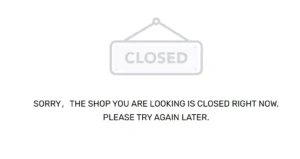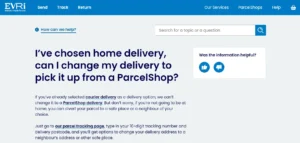Kramer-Newman Bottle Return Scam – The cultural influence of the television show Seinfeld is evident in its incorporation of oddball plot devices, particularly those related to food and beverages. One such episode features a bottle deposit scam in Michigan, where characters Kramer and Newman attempt to exploit the state’s high refund rate of ten cents per bottle.
Recent events have brought attention to real-life bottle scams, such as the case of Brian Edward Everidge, who was apprehended with a truck filled with cans and confessed to collecting them from Kentucky.
Facing charges of attempting to return non-refundable bottles, Everidge may be sentenced to up to five years in prison. This raises questions regarding the influence of the Seinfeld episode and the potential impact of popular culture on individuals’ behavior.
Moreover, it highlights the importance of proper bottle recycling for waste management and environmental concerns, as well as the need to address the loopholes that undermine the effectiveness of recycling programs.
The legal consequences and ongoing debates surrounding bottle deposit systems further contribute to the significance of examining these oddball cultural happenings in relation to recycling practices.
Table of Contents
About Kramer-Newman Bottle Return Scam
The influence of Seinfeld can be observed in its incorporation of oddball cultural happenings, such as the bottle deposit scam featured in a Michigan episode, highlighting the show’s ability to capture and depict these unique cultural phenomena.
Seinfeld’s comedic legacy lies in its ability to turn everyday situations into comedic gold, and this includes its clever use of pop cultural references.
The show’s plot devices often revolve around food and beverages, with memorable episodes centered around soup chefs, babka races, and, in this case, a bottle deposit scam.
By incorporating these unusual situations into its storyline, Seinfeld not only entertained viewers but also provided a satirical commentary on the quirks and idiosyncrasies of everyday life.
The show’s ability to seamlessly integrate oddball cultural happenings into its narrative contributed to its reputation as one of the greatest series in television history.
Michigan’s Bottle Deposit Law
Michigan’s bottle deposit law requires a ten-cent refund for beverage containers. This policy aims to promote bottle recycling and reduce litter. However, the effectiveness of Michigan’s bottle deposit law is not without its flaws.
There are potential loopholes in the bottle deposit system that can be exploited by individuals seeking to scam the system for personal gain. These scams undermine the integrity of the recycling program and hinder its ability to achieve its goals.
The high refund amount in Michigan attracts attention and potential exploitation, making it necessary to address these loopholes and ensure the proper functioning of the bottle deposit system.
By doing so, Michigan can enhance the effectiveness of its recycling efforts and maintain the integrity of its bottle deposit law.
Legal Consequences
Legal consequences for individuals attempting to exploit the bottle deposit system in Michigan include potential penalties of up to five years in prison, reflecting the seriousness of the crime and serving as a deterrent against similar fraudulent activities. These penalties highlight the effectiveness of deterrents in protecting the integrity of recycling programs and discouraging individuals from engaging in bottle deposit scams.
However, debates surrounding the fairness of these penalties persist. Some argue that the severity of the punishment may be excessive, considering that bottle deposit scams do not cause direct harm to individuals or property. Others contend that the penalties are justified, as they help maintain the effectiveness of recycling programs and discourage fraudulent behavior.
Balancing the need for deterrence with fairness in penalties remains an ongoing challenge in addressing bottle deposit scams and ensuring the integrity of recycling systems.
Environmental Concerns
Environmental sustainability is a key concern when it comes to the integrity and effectiveness of bottle deposit systems. These systems aim to promote recycling and reduce waste by providing financial incentives for returning bottles. However, there are challenges in ensuring that these systems are effective in achieving their goals.
Recycling incentives: Bottle deposit systems play a crucial role in incentivizing recycling. By offering a refund for returned bottles, these systems encourage individuals to participate in recycling programs and reduce their environmental impact. This helps divert waste from landfills and conserve valuable resources.
Waste management challenges: Proper waste management is essential for environmental sustainability. Bottle deposit systems help address the challenge of managing plastic waste by promoting recycling.
However, the success of these systems relies on effective collection and processing infrastructure. Insufficient recycling facilities and a lack of public awareness can hinder the overall effectiveness of bottle deposit systems.
Impact on environmental sustainability: Bottle deposit scams, such as the one attempted by Brian Edward Everidge, undermine the integrity of recycling programs. These scams not only result in financial losses but also contribute to environmental harm.
By exploiting the system, scammers divert valuable resources away from recycling and create additional waste. It is crucial to enforce laws and maintain the integrity of bottle deposit systems to ensure their effectiveness in promoting environmental sustainability.
In conclusion, bottle deposit systems provide recycling incentives and help address waste management challenges. However, the effectiveness of these systems relies on proper infrastructure and public awareness.
Bottle deposit scams pose a threat to environmental sustainability by undermining recycling efforts. It is essential to enforce laws and promote the integrity of these systems to ensure their effectiveness in reducing environmental impact and promoting recycling.
Controversies and Debates
One area of discussion surrounding bottle deposit systems revolves around their impact on waste management practices and the overall effectiveness of recycling programs. The controversies and debates center on the balance between the effectiveness of these systems in promoting recycling and the inconvenience they may impose on consumers.
Critics argue that bottle deposit laws are burdensome and inconvenient, as they require consumers to return their empty bottles to designated locations for refunds. On the other hand, proponents argue that these systems are essential in reducing litter and promoting recycling, emphasizing the financial incentives they provide.
Additionally, fairness and equity are also subjects of debate, particularly in states with higher refund amounts like Michigan. Some argue that higher refunds may attract potential scams and exploitation, while others believe it promotes a more equitable approach to waste management.
These ongoing discussions aim to evaluate the effectiveness, convenience, fairness, and equity of bottle deposit systems in promoting recycling and managing waste.
Impact on Recycling Programs
The impact of bottle deposit systems on waste management practices and the success of recycling programs is a topic of ongoing evaluation and discussion. These systems, which provide financial incentives for returning beverage containers, aim to promote recycling and reduce litter.
However, the effectiveness of these financial incentives in encouraging individuals to participate in recycling programs is a subject of debate. While some argue that monetary rewards are effective in motivating people to recycle, others question whether they are sufficient to change behavior on a large scale.
Additionally, the role of education and awareness in promoting recycling cannot be overlooked. By increasing public knowledge about the environmental benefits of recycling and the importance of proper waste management, individuals may be more likely to participate in bottle deposit systems and other recycling initiatives.
Therefore, a comprehensive approach that combines financial incentives with education and awareness campaigns may be necessary to maximize the impact of bottle deposit systems on recycling programs and waste management practices.
Frequently Asked Questions
Did Brian Edward Everidge get the idea for the bottle deposit scam from the Seinfeld episode?
It is unclear if Brian Edward Everidge got the idea for the bottle deposit scam from the Seinfeld episode. The influence of the TV show on his actions remains unanswered.
Was the bottle deposit scam successfully executed in the Seinfeld episode?
The bottle deposit scam from the Seinfeld episode was not successfully executed. It remains unclear if Brian Edward Everidge got the idea from the TV show. The impact of the scam on recycling and environmental concerns is significant.
How does proper recycling reduce environmental impact?
Proper recycling reduces environmental impact by minimizing the need for raw materials, reducing energy consumption, and decreasing greenhouse gas emissions. It contributes to waste management by diverting materials from landfills and promoting a circular economy.
How do bottle deposit scams undermine the effectiveness of recycling programs?
Bottle deposit scams undermine the effectiveness of recycling programs by exploiting financial incentives. These scams divert valuable resources meant for recycling, reducing the overall impact of these programs on the environment and undermining their integrity.
What are some arguments against bottle deposit laws and refund systems?
Arguments against bottle deposit laws and refund systems include claims of burden and inconvenience, questioning their effectiveness and fairness. Critics argue that they create additional costs for businesses and consumers and that alternative recycling methods are more efficient and cost-effective.
Also Read
Is Advancedfinancialhelp.org Scam or Legit? Unveiling The Truth
Mupups Scam Explained: A Scam Usps Website Stealing Your Data
Is airjordanofficial.us.com Legit or a Scam? Uncovering The Truth
Also Read
Want a Bump Energy Review – Boost Your Energy Or Scam?
Vuletti Jewelry Reviews – Is Vuletti Jewelry A Scam or Legit?
Cool n Save Reviews – Is Cool N Save Legit or a Scam?
Also Read
Arfym Clothing Review – Affordable And Trendy Clothing?
Vrinax Reviews – Is Vrinax.Com Legit or a Scam?
Is Diarygiraffe Com Legit or a Scam? – The Qvc Impersonation Scam
Also Read
Is Mymups.Com Scam or Legit? – Fake Usps Website Threat
Is Mrkups.Com Scam or Legit? – Impersonating Usps
Is Salesaverr.Com Scam or Legit? Salesaverr.Com Reviews
Also Read
Is Oruzora.Com Scam or Legit? Using HSN and AMAZON Brands
Is Pearllis.Com Scam or Legit? Pearllis.Com Reviews
Cweede.com Reviews – Is Cweede.com Legit or a Scam?
Also Read
Is Geek Squad Email Scam or Legit? How to Stay Safe Online
Faith Bra Reviews – Is Faith Bra Legit & Worth Trying?
Baiia Swimwear Reviews – Is Baiia Swimwear Worth the Hype?
Also Read
Fokups Scam Explained – The Fake Ups Redelivery Website Scam
Is Allure Sports Scam or Legit? Alluresports.Com Scam Review

















































